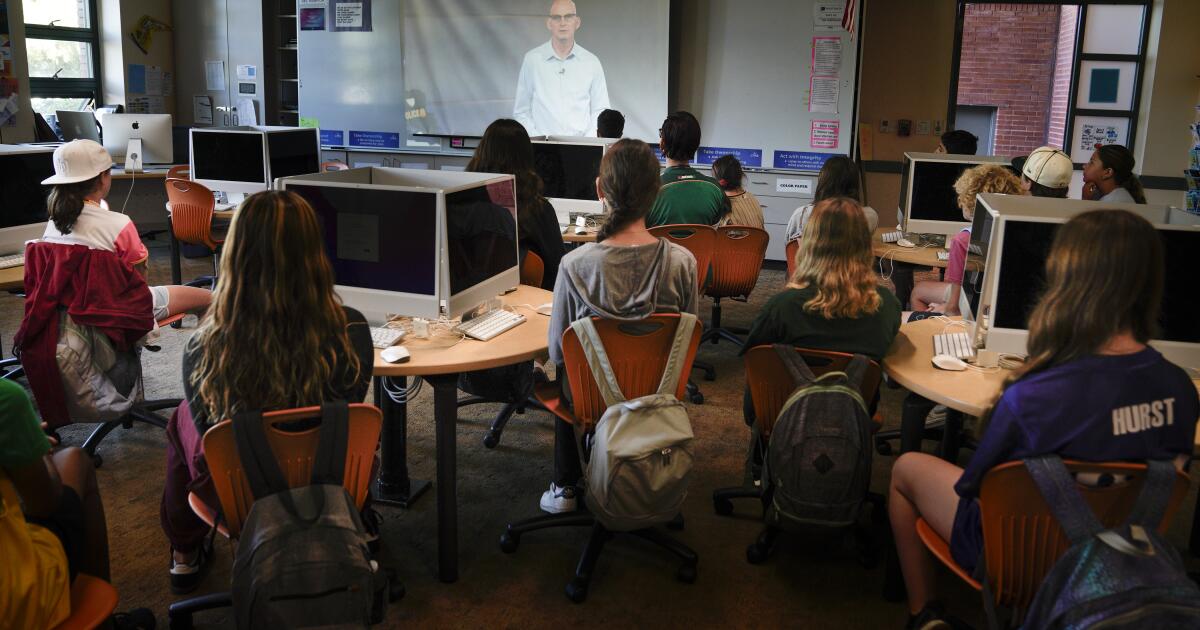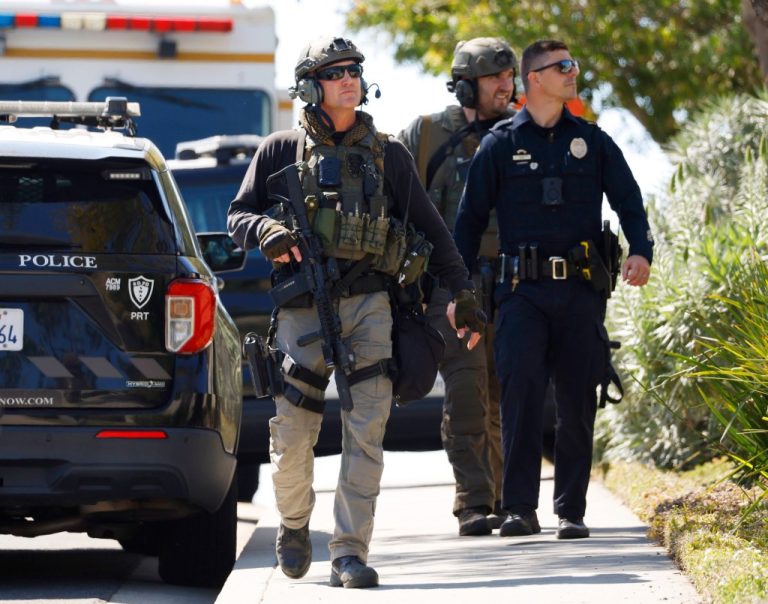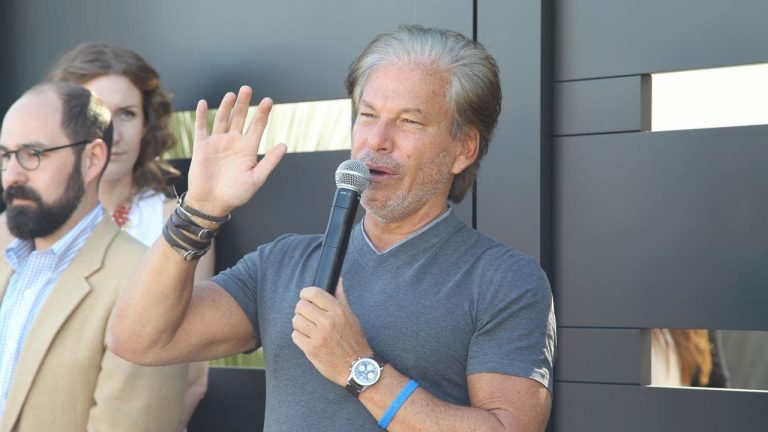
County education leaders on Tuesday announced the release of a series of drug-prevention education videos hosted by a former Drug Enforcement Administration special agent and featuring talks by other local experts.
The free videos, posted on the county Office of Education’s website, seek to expand on the drug prevention efforts that up until now were only done in person by Rocky Herron, who became the county’s drug abuse prevention ambassador after retiring from the DEA. The idea is to make the “I Choose My Future” program available to more people.
Education officials gathered with a Rady Children’s Hospital pediatrician and county District Attorney Summer Stephan to announce the launch of the videos at a press conference at Coronado Middle School. The video release was pegged to Red Ribbon Week, a national drug-prevention effort began in 1985.
Herron’s presentation covers such topics as how drug use affects developing brains, the dangers of vaping and how the synthetic opioid fentanyl is found in most street drugs including pills that look like legitimate pharmaceuticals.
Herron tells students that drugs today are stronger, cheaper, easier to get and more socially acceptable than ever before — so they need to be prepared if a friend asks them to use. His talks include a mix of personal anecdotes from his DEA days, photos of overdose victims shown in an emotional slideshow, and a lot of facts.
He is the host on the six online videos, which range in length from 11 to 22 minutes. Stephan and Dr. Natalie Laub, a Rady Children’s Hospital pediatrician and UC San Diego assistant professor, both appear on the videos.

Coronado 7th and 8th graders spoke with Rocky Herron after watching the new drug prevention video series.
(Nelvin C. Cepeda/The San Diego Union-Tribune)
“I believe primary prevention education is our only way out,” said Herron. “We have to teach our future generations of kids not to surrender themselves to the harm of substance abuse.”
Paul Gothold, the county’s superintendent of schools, said Herron’s presentations resonate with audiences. That’s why the county decided to amplify his message by creating videos that could be easily shared with teachers as well as parents and caregivers.
“The problem is there’s only one Rocky. So how do we scale this and make sure that all kids have the information they need and deserve?” Gothold said.
San Diego County leaders declared fentanyl a public health emergency in 2022 after a sharp rise in fentanyl overdose deaths — from 148 in 2019 to 812 in 2021, including a dozen victims under the age of 18. Among the deaths recorded by the county Medical Examiner’s Office was a 24-week-old fetus that died and the child’s mother, who overdosed on fentanyl and Xanax.
Officials said illicit pills often contain a deadly dose of fentanyl, a powerful synthetic opioid that is similar to morphine but is 50 to 100 times more potent.
The Medical Examiner’s Office has seen a leveling off in cases for 2022— 791 accidental fentanyl overdose deaths have been recorded so far, and officials believe that could reach 815 when all the cases are finalized. Six deaths were victims under the age of 18.
Every week, Stephan said she talks with a parent who has lost a child to fentanyl — some who discovered their children’s bodies.
“This image of looking in a parent’s eyes — and seeing that sea of pain that will never go away — has driven our team to continue our strong prosecutions against the greedy drug dealers,” she said, noting that her office has brought seven murder cases against dealers who knew they were selling deadly substances.
But prosecutions occur after a death has occurred, while drug education programs may actually prevent deaths. She said she believes the videos will be “transformative” and underscore the message that one pill can kill.
“Today’s experimentation is tomorrow’s funeral,” she said.

Dr. Natalie Laub, a pediatric physician at Rady Children’s Hospital, was among those who spoke about drug misuse during a press conference announcing the video series Tuesday.
(Nelvin C. Cepeda/The San Diego Union-Tribune)
Cannabis overdoses are also a concern. Since 2016, Rady’s Children Hospital has seen an 800 percent increase in children under the age of 10 ingesting cannabis — often toddlers eating gummies or other cannabis-infused products by mistake. There also has been a 300 percent increase in teens showing up at the emergency room with cannabis poisoning, according to Laub.
She said the cannabis industry is targeting children and leaving teens thinking it is safe. But, she said, cannabis use “really dramatically adversely affects the teenage brain” and damages parts responsible for memory and decision making.
Every year, Herron gives in-person presentations at Coronado schools. On Tuesday, eighth-graders Owen Ehrlichmann and Anna Thoms told reporters his talks last school year made them think more about the impact drugs have on people’s lives.
“This presentation really showed me how even trying it one time or just saying ‘yes’ one time can completely change your entire approach to life (and) your future,” Anna said.
Said Owen: “It can really change your life, not for better but for worse.”




